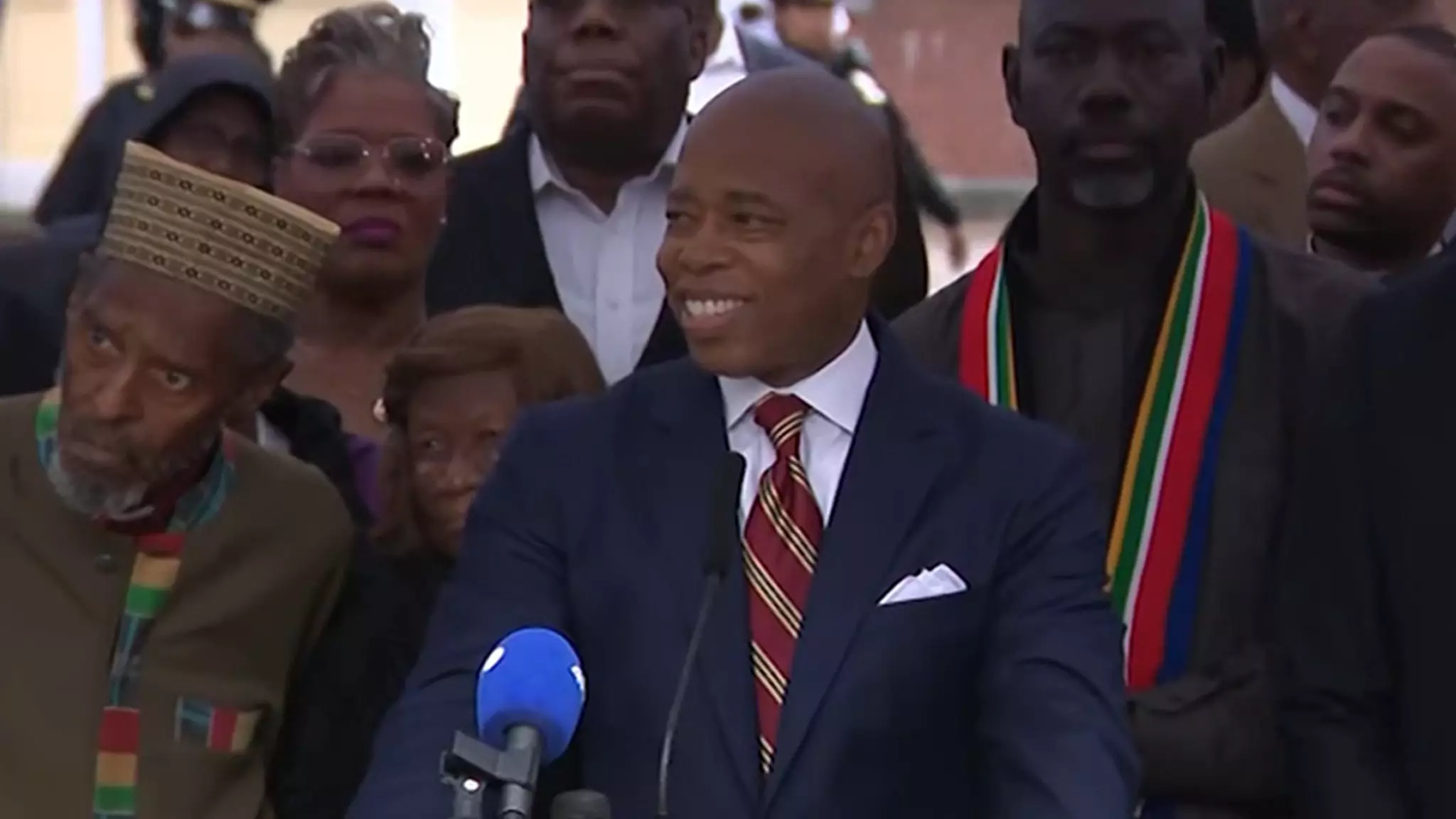The political landscape of New York City is currently gripped by controversy as Mayor Eric Adams faces a serious indictment unveiled by the U.S. Attorney’s Office. In an unsettling turn of events, a 57-page document details accusations that include campaign finance violations, bribery, and conspiracy. What’s perplexing is that despite these severe charges, Adams appears unfazed, presenting a façade of calmness and positivity. This juxtaposition raises questions about the implications of his legal troubles for his future as mayor and the broader political climate in New York.
The indictment, issued by U.S. Attorney Damian Williams, paints a troubling picture of the mayor’s dealings with foreign nationals and domestic influences. The key allegation is that Adams supposedly accepted valuable benefits from foreign business entities, including an official from Turkey. The implication is clear: these actions threaten to undermine the integrity of American electoral processes. Furthermore, the charges allege that he manipulated a city matching fund program, transforming large donations from foreign entities into numerous smaller transactions via straw donors to secure significant public funds for his campaign.
These serious accusations are compounded by claims that Adams received unreported travel benefits, allowing him to traverse the globe at little to no cost, further questioning his ethics and transparency as a public servant.
The path to this indictment was not without its dramatic moments. The investigation escalated to the point where agents had to raid Gracie Mansion, the iconic residence of the mayor. This display of law enforcement raises brows about the gravity of the indictment’s basis and the seriousness of the allegations. Conducting such an operation at the mayor’s official residence indicates that the U.S. Attorney’s Office is taking these charges seriously, signaling potential repercussions that may ripple throughout the city’s political fabric.
Despite the turmoil unleashed by these indictments, Mayor Adams remains resolute in his position. In a recent public statement, he expressed determination not to resign, insisting that he will continue to lead the city amid these grave allegations. His unwavering stance, coupled with his optimistic demeanor, invites scrutiny. Is this confidence genuine, or is it a show of bravado in the face of potential impeachment or criminal penalties?
Furthermore, the mayor’s response raises essential questions about the accountability mechanisms in place for elected officials. The public’s reaction is one of intrigue; will voters see through his convictions and stand by their mayor, or will this scandal serve as a catalyst for change in leadership?
The ramifications of Adams’ indictment extend beyond his immediate future. The charges he faces could ignite a broader conversation about campaign finance reform, foreign influence in local elections, and the ethical standards expected of public officials. As the narrative unfolds, it is critical for New Yorkers to remain vigilant, demanding transparency and integrity from their leaders, especially in an era where trust in the political system is waning.
Mayor Eric Adams finds himself in a precarious position, navigating legal challenges that could redefine his career while maintaining a public façade of confidence. As the wheels of justice turn, the eyes of the city remain fixed on the developments that will inevitably shape not just his fate, but the future of New York City itself.

